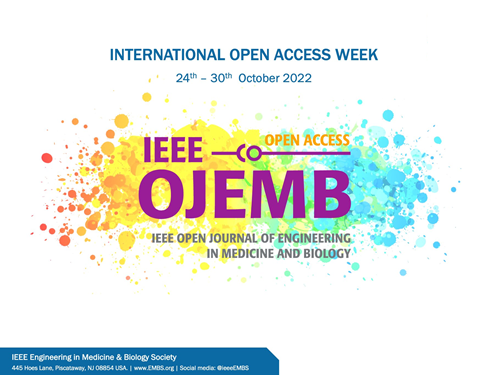Physically Meaningful Surrogate Data for COPD
IF 2.7
Q3 ENGINEERING, BIOMEDICAL
IEEE Open Journal of Engineering in Medicine and Biology
Pub Date : 2024-01-31
DOI:10.1109/OJEMB.2024.3360688
引用次数: 0
Abstract
The rapidly increasing prevalence of debilitating breathing disorders, such as chronic obstructive pulmonary disease (COPD), calls for a meaningful integration of artificial intelligence (AI) into respiratory healthcare. Deep learning techniques are “data hungry” whilst patient-based data is invariably expensive and time consuming to record. To this end, we introduce a novel COPD-simulator, a physical apparatus with an easy to replicate design which enables rapid and effective generation of a wide range of COPD-like data from healthy subjects, for enhanced training of deep learning frameworks. To ensure the faithfulness of our domain-aware COPD surrogates, the generated waveforms are examined through both flow waveforms and photoplethysmography (PPG) waveforms (as a proxy for intrathoracic pressure) in terms of duty cycle, sample entropy, FEV 1 /FVC ratios and flow-volume loops. The proposed simulator operates on healthy subjects and is able to generate FEV 1 /FVC obstruction ratios ranging from greater than 0.8 to less than 0.2, mirroring values that can observed in the full spectrum of real-world COPD. As a final stage of verification, a simple convolutional neural network is trained on surrogate data alone, and is used to accurately detect COPD in real-world patients. When training solely on surrogate data, and testing on real-world data, a comparison of true positive rate against false positive rate yields an area under the curve of 0.75, compared with 0.63 when training solely on real-world data.有物理意义的慢性阻塞性肺病替代数据
慢性阻塞性肺病(COPD)等使人衰弱的呼吸系统疾病的发病率迅速上升,这要求将人工智能(AI)切实融入呼吸系统医疗保健中。深度学习技术是一种 "数据饥渴症",而基于患者的数据记录总是既昂贵又耗时。为此,我们推出了一种新颖的慢性阻塞性肺病模拟器,这是一种易于复制设计的物理设备,能够快速有效地从健康受试者那里生成大量类似慢性阻塞性肺病的数据,以加强深度学习框架的训练。为确保我们的领域感知慢性阻塞性肺病替代物的忠实性,我们通过流量波形和光电血压计(PPG)波形(作为胸内压的替代物)对生成的波形进行了占空比、样本熵、FEV1/FVC 比值和流量-容积环路检查。所提议的模拟器可在健康受试者身上运行,并能生成从大于 0.8 到小于 0.2 的 FEV1/FVC 阻塞比,反映了在真实世界中慢性阻塞性肺疾病的全部观察值。在最后的验证阶段,一个简单的卷积神经网络仅在代理数据上进行了训练,并用于准确检测真实世界患者的慢性阻塞性肺病。当仅使用代用数据进行训练并使用真实世界数据进行测试时,真阳性率与假阳性率的比较曲线下面积为 0.75,而仅使用真实世界数据进行训练时曲线下面积为 0.63。
本文章由计算机程序翻译,如有差异,请以英文原文为准。
求助全文
约1分钟内获得全文
求助全文
来源期刊

IEEE Open Journal of Engineering in Medicine and Biology
ENGINEERING, BIOMEDICAL-
CiteScore
9.50
自引率
3.40%
发文量
20
审稿时长
10 weeks
期刊介绍:
The IEEE Open Journal of Engineering in Medicine and Biology (IEEE OJEMB) is dedicated to serving the community of innovators in medicine, technology, and the sciences, with the core goal of advancing the highest-quality interdisciplinary research between these disciplines. The journal firmly believes that the future of medicine depends on close collaboration between biology and technology, and that fostering interaction between these fields is an important way to advance key discoveries that can improve clinical care.IEEE OJEMB is a gold open access journal in which the authors retain the copyright to their papers and readers have free access to the full text and PDFs on the IEEE Xplore® Digital Library. However, authors are required to pay an article processing fee at the time their paper is accepted for publication, using to cover the cost of publication.
 求助内容:
求助内容: 应助结果提醒方式:
应助结果提醒方式:


